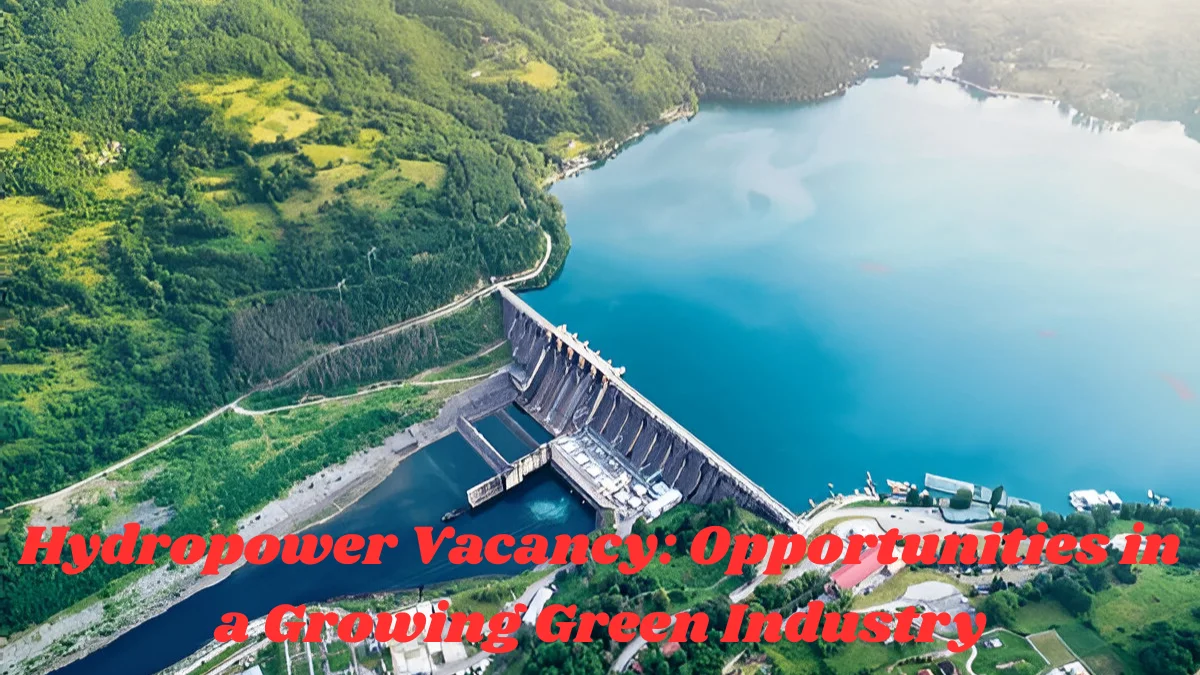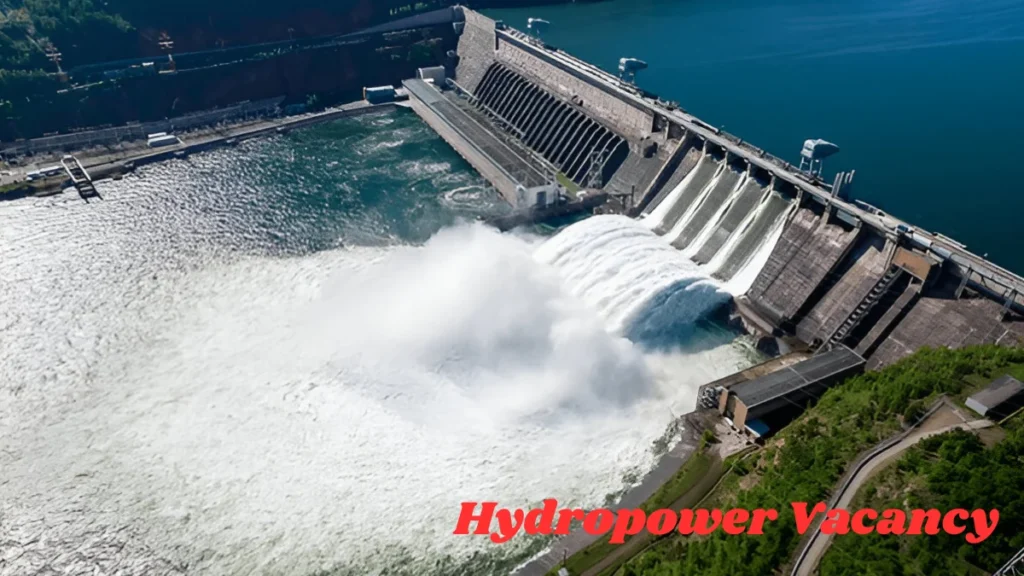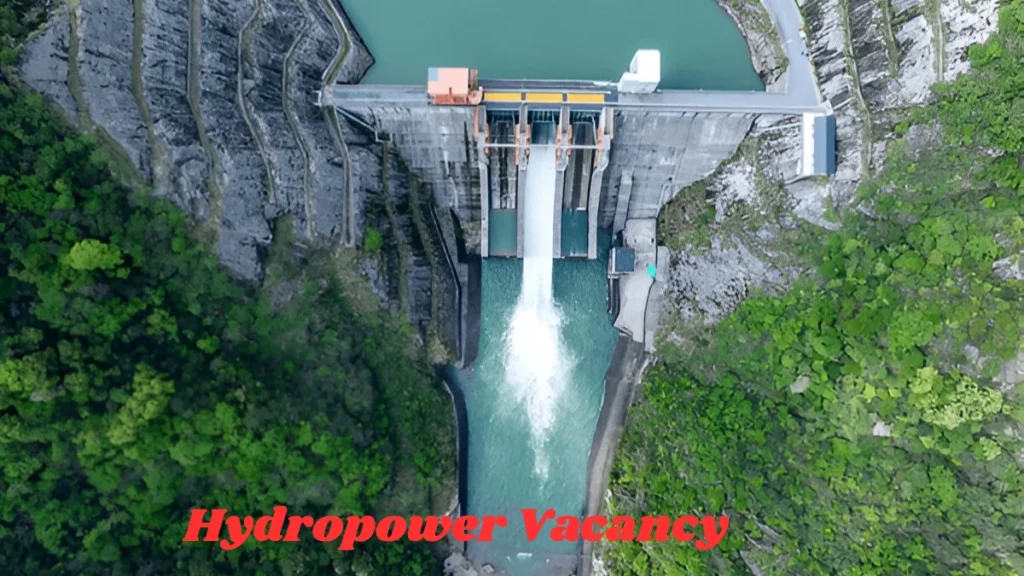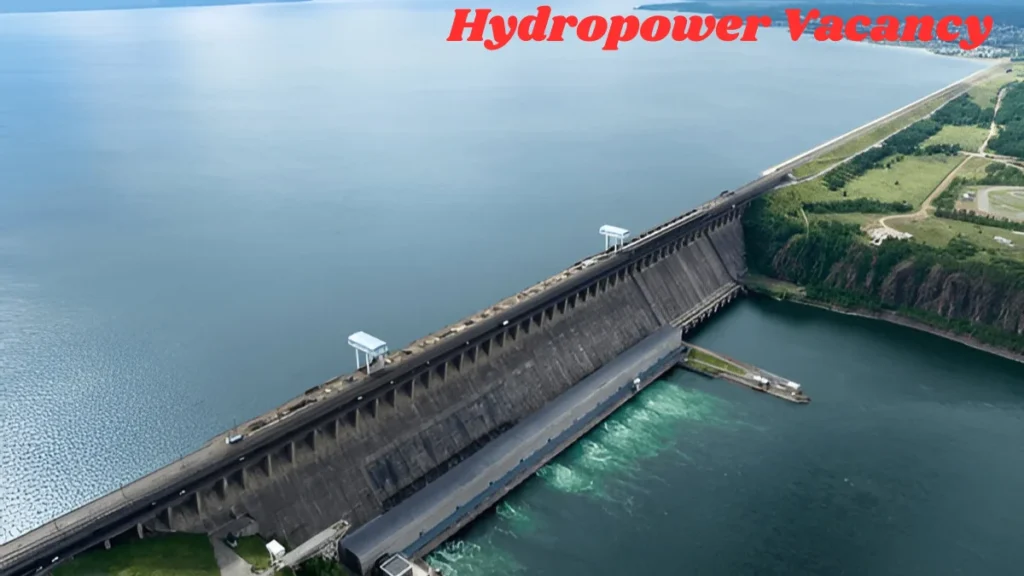
Table of Contents: hydropower vacancy
Looking for a career that’s future-proof and environmentally impactful? Hydropower vacancies are opening doors for professionals ready to dive into the clean energy revolution. In this article, we’ll explore what hydropower jobs are, where to find them, what skills you need, and how to get started in this promising sector.
What is Hydropower?
The Basics of Hydropower
Hydropower, or hydroelectric power, is energy generated by harnessing the flow of water. Think rivers, dams, waterfalls — basically, anywhere water moves with force.
How Hydropower Works
The idea’s simple: moving water turns turbines, which then generate electricity. It’s one of the oldest and most reliable forms of renewable energy, making it a top choice for countries transitioning to green power.

Why Hydropower is the Future
Clean Energy Demand
With global warming and fossil fuel concerns, clean energy isn’t just a trend — it’s a necessity. Hydropower is renewable, reliable, and significantly reduces carbon emissions.
Global Investment Trends
Nations worldwide are investing billions into hydropower projects. From upgrading old dams to building new ones, job opportunities are booming.
What is a Hydropower Vacancy?
A hydropower vacancy simply refers to an open position in a hydropower-related project or organization. These range from technical roles to administrative support.
Job Roles in Hydropower Projects
Engineers
Mechanical, civil, and electrical engineers are at the core of hydropower infrastructure.
Technicians
These professionals handle maintenance, installations, and equipment monitoring.
Environmental Scientists
They assess the ecological impact and help make operations eco-friendly.
Project Managers
Overseeing timelines, budgets, and teams, they ensure smooth project execution.
Support & Admin Roles
HR, finance, and logistics keep the operation running behind the scenes.
Educational Requirements
Degrees and Certifications
Most technical roles require at least a bachelor’s in engineering, environmental science, or a related field. Certifications like PMP (for project managers) or LEED (for sustainability) boost your resume.
Training and Internships
Many organizations offer internships or apprenticeships. These are golden opportunities to gain hands-on experience.

Where to Find Hydropower Vacancies
Top Job Boards and Sites
Websites like Indeed, Glassdoor, and LinkedIn list hundreds of hydropower vacancies globally.
Government Job Portals
National energy departments often post vacancies directly. Check government websites regularly.
Company Career Pages
Leading firms in the industry — like GE Renewable Energy, Voith Hydro, and Andritz — update their career pages with fresh listings.
Countries Hiring in the Hydropower Sector
United States
With a strong push for renewable energy, the U.S. is investing heavily in hydro upgrades and new projects.
Canada
Rich in water resources, Canada leads in hydropower generation and exports talent internationally.
Norway
Almost 100% of Norway’s electricity comes from hydropower — and they’re always on the lookout for new talent.
India
A growing economy with vast water resources, India is building numerous hydroelectric projects across the country.
Skills You Need to Succeed
Technical Skills
- Engineering design
- Electrical systems
- Environmental analysis
- CAD software
Soft Skills
- Teamwork
- Communication
- Critical thinking
- Project coordination
Salary Expectations
Entry-Level
$40,000–$60,000 per year depending on the role and location.
Mid-Level
$60,000–$90,000 annually, often with benefits like travel and bonuses.
Senior-Level
$100,000+ for experienced professionals in leadership or niche technical roles.
Career Growth and Opportunities
Promotions and Specializations
From junior technician to lead engineer or from analyst to sustainability director — hydropower offers long-term career progression.
Challenges in the Industry
Environmental Concerns
Hydropower can impact fish habitats and river ecosystems. Sustainability efforts are ongoing.
Regulatory Hurdles
Permits and legal approvals can delay projects, requiring experts in compliance and law.

How to Prepare for a Career in Hydropower
Building a Resume
Tailor your resume for the hydropower industry by highlighting relevant experience, certifications, and education.
Nailing the Interview
Research the company, understand the project, and be ready to explain how you can contribute to their green goals.
Final Thoughts: hydropower vacancy
Hydropower isn’t just about dams and turbines — it’s about building a better future. Whether you’re an engineer, technician, or administrator, there’s a spot for you in this booming field. So, if you’re passionate about sustainability and eager to join the clean energy movement, start exploring hydropower vacancies today!
FAQs: hydropower vacancy
Q1: What qualifications do I need to apply for a hydropower job?
A: A degree in engineering, environmental science, or a related field is often required. Certifications and experience boost your chances.
Q2: Are hydropower jobs only technical?
A: Not at all! There are roles in HR, finance, administration, marketing, and more.
Q3: Do hydropower jobs pay well?
A: Yes, especially mid- and senior-level roles. Entry-level positions also offer competitive salaries.
Q4: Is experience in other energy sectors transferable?
A: Definitely! Skills from solar, wind, or even oil and gas can be valuable in hydropower.
Q5: Are hydropower careers stable long-term?
A: Absolutely. With global investments rising, this industry is here to stay.
